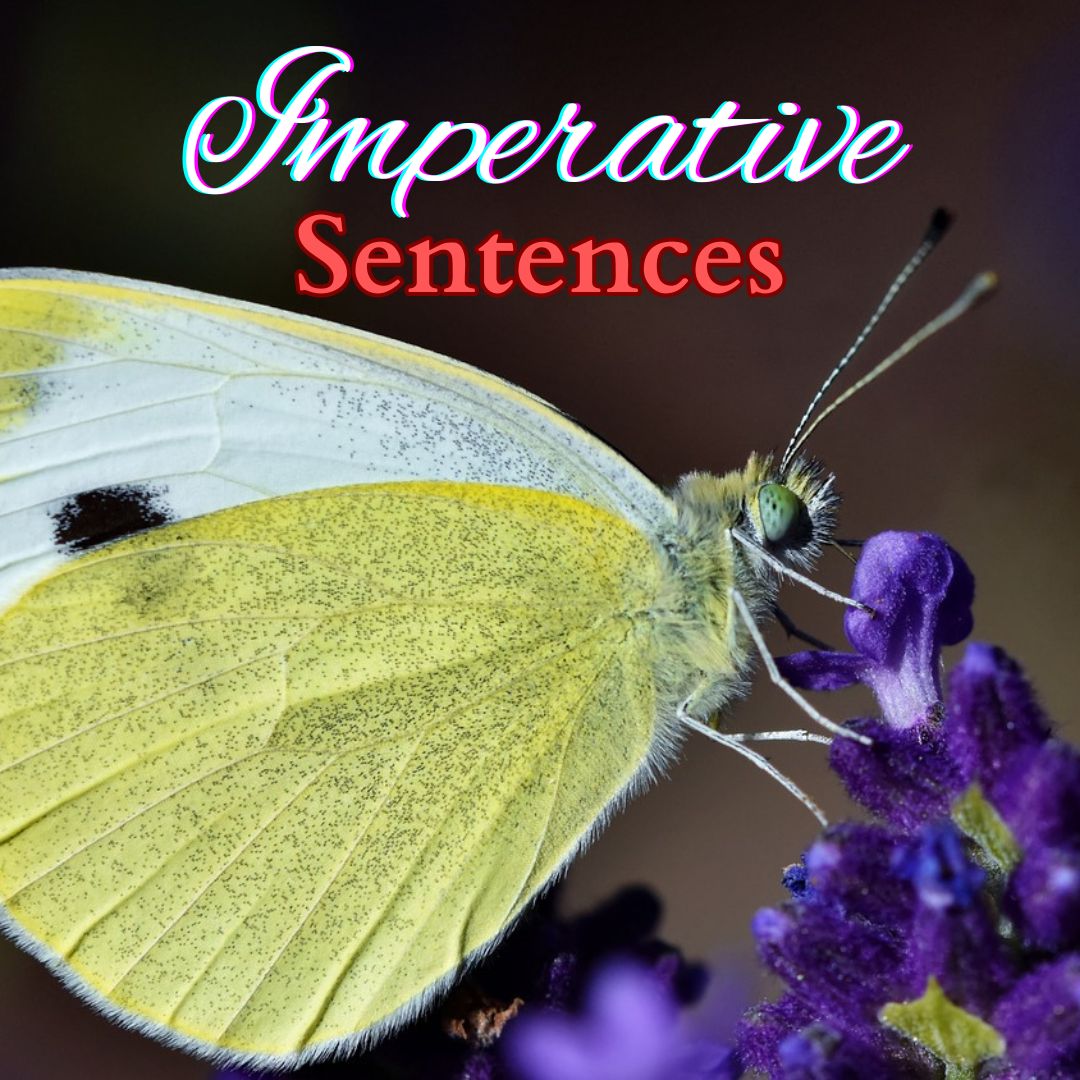Imperative Sentences

Imperative Sentences
An imperative sentence is a type of sentence that gives a command, makes a request, or offers advice.
It is usually directed towards the listener or reader.
Affirmative Imperative:
[Verb (+ Subject You)]
Affirmative imperative sentences are commands or requests given in a positive or affirmative manner.
Examples:
Close the door.
Smile for the camera.
Verb Usage:
The base form of the verb is used in the imperative form.
There is no subject explicitly stated, and the pronoun you is implied.
Word Order:
The typical word order is verb + optional subject (you).
Structure:
[Verb (+ Subject You)]
Examples:
Command: Open the window.
Request: Please pass the salt.
Advice: Listen carefully.
Negative Imperative:
[Do Not + Verb (+ Subject You)]
Negative imperative sentences are commands or requests given in a negative manner, indicating what should not be done.
Examples:
Do not disturb.
Don’t be late.
Verb Usage:
The base form of the verb is used with the word do not or its contraction don’t.
Word Order:
The typical word order is Do Not + Verb + Optional Subject (You).
Structure: [Do Not + Verb (+ Subject You)]
Examples:
Command: Do not touch that button.
Request: Please don’t interrupt.
Advice: Don’t forget your keys.
In both cases, the subject you is usually implicit but can be explicitly mentioned for emphasis.
Intonation in Imperative Sentences:
Affirmative Imperative Sentences:
Typically, affirmative-imperative sentences have a falling intonation pattern.
The pitch of the voice tends to fall on the final word of the sentence.
This falling intonation gives a sense of completion and authority.
Example: Close the door.
Negative Imperative Sentences:
Negative imperative sentences often have a rising intonation pattern.
The pitch of the voice rises on the final word or words, conveying a sense of questioning or seeking confirmation.
Example: Don’t open the window.
Will you? and won’t you? are used at the end of imperative sentences can be a way to soften the command or suggestion and make it sound more like a polite request.
This structure is often used when offering advice or making a suggestion in a friendly manner.
Affirmative with will you?:
Open the window, will you?
Pass me the salt, will you?
Please send me the report, will you?
Negative with, won’t you?:
Don’t forget to call, won’t you?
Don’t be late, won’t you?
Please don’t disturb him, won’t you?
These constructions are common in conversational English and can convey a sense of politeness and consideration.
The will you? and won’t you? tags invite agreement or compliance rather than simply instructing.
They can be particularly useful in situations where a more diplomatic or gentle approach is preferred.
Imperative sentence in question form:
Interrogative imperative sentences, which are a form of suggestion or request framed as a question, often use will or would.
This usage adds a polite and considerate tone to the suggestion.
Here are examples:
Using will in interrogative imperative sentences:
Will you please pass me the salt?
Will you close the door behind you?
Will you kindly provide me with your assistance?
Using would in interrogative imperative sentences:
Would you mind turning down the volume, please?
Would you be able to help me with this task?
Would you kindly refrain from smoking in this area?
The use of will or would in these constructions contributes to a more courteous and diplomatic communication style.
Politeness and tone:
Imperative sentences primarily involve giving commands, making requests, or offering suggestions.
However, politeness is crucial when using imperative sentences.
Adding words like please, kindly, or using a question form can make requests more polite.
Non-verbal cues, such as intonation and body language, play a role in how imperative sentences are perceived.
A friendly tone or appropriate gestures can enhance communication.
Tag Questions (Interrogative Sentence)
Yes/No Questions (Interrogative Sentence)
Types of Interrogative Sentences
Stylistic Elegance: The Role of Subject-Verb Inversion in Language
Parallelism in English Grammar